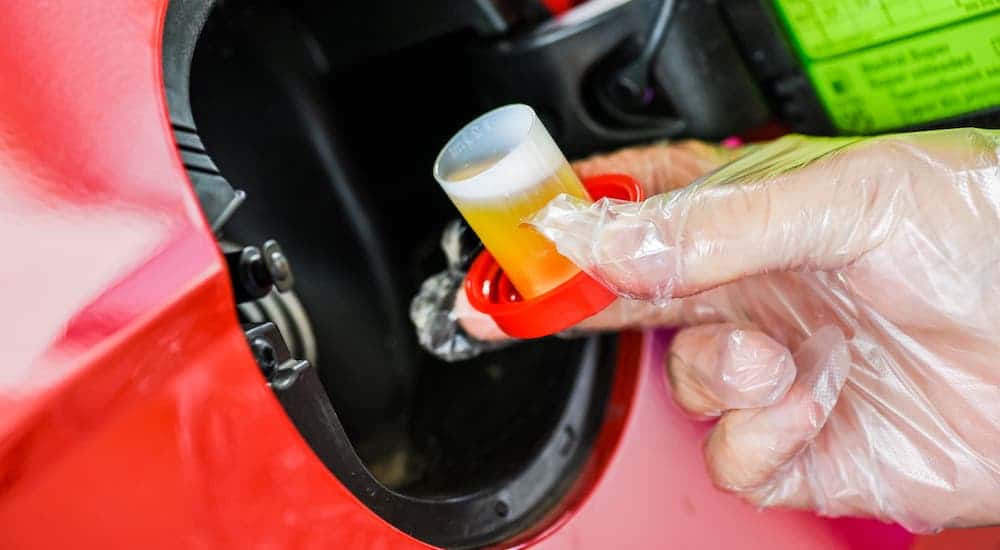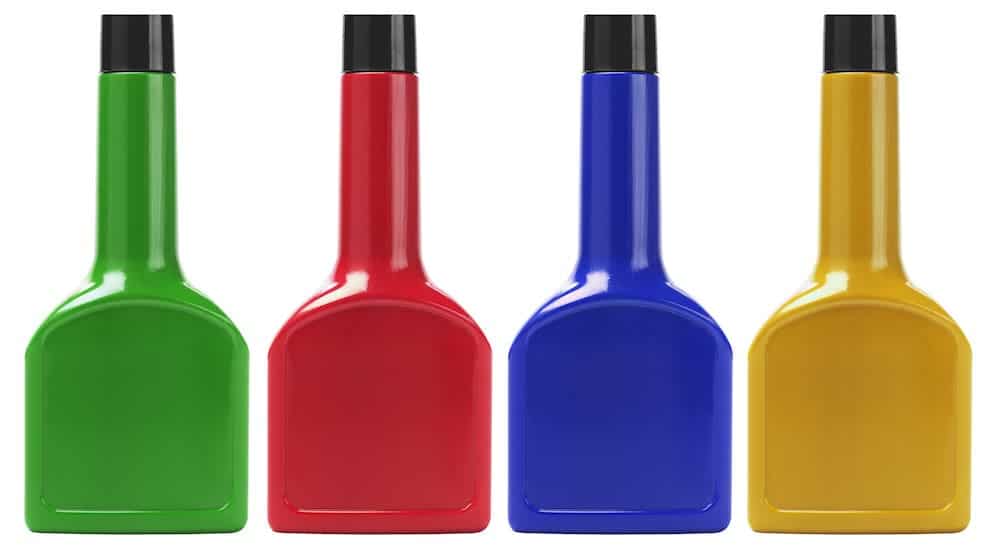If you’ve been inside an auto parts store at any point in the last couple of decades, then you’ve likely noticed a particular trend: the massive increase in the number of little bottles filling aisles. While some of these bottles contain important things like motor oil and coolant, many of them offer a wide range of car additives designed to do various things. A lot of these additives will make wild promises about boosting the performance of your vehicle, turning it into a high-performance sports car, or giving it gas mileage like a hybrid.
The reality, however, is that these additives are really a mixed bag: some of them work, certainly, but some of them are truly a waste of money. Even worse, a lot of these additives claim to fix issues with your vehicle, which they may or may not actually do. That means it’s easy to have a minor problem, buy one of these additives and use it, assume it’s fixed the issue, and then discover that it hasn’t and find yourself with a much bigger (and more expensive) disaster on your hands. So, knowing what to use and what to skip will not only save you time and energy, it can save you money. Let’s take a look at some common types of additives and see if they’re worth it.
Fuel System Cleaners
Some people would group together all “fuel cleaners,” but it’s worth considering them in two different ways. Fuel system cleaners are additives that are designed to clean out your fuel system overall, including your gas tank, fuel lines, and everything else. These are quite common, and the good ones do work pretty well – though don’t worry about looking for ones that claim to fight corrosion or rust. A straightforward cleaner can be worth it and is easy to use.
Fuel Injection Cleaners
Other additives are specifically designed as fuel injector cleaners, which are meant to help clean carbon deposits specifically from your fuel injectors. The value of these really depends on your vehicle (how its engine is designed) and the way you drive. If you tend to mostly make short trips, where your engine never gets really hot, then these cleaners can be very helpful. But if you do a lot of highway driving and your engine gets good and hot while in use, then it can typically keep the injectors clean all on its own.

Gasoline Stabilizers
This is a niche item that’s very good at what it does, but most people won’t have a use for it. Gasoline stabilizers are additives for your gas tank designed to keep gasoline in the tank from evaporating. For a car you’re driving all the time, these additives are completely unnecessary. However, they’re great for a vehicle that you only drive a few times a year, like a classic that you only take out for shows and that sits for months without use. You can also use these for boats or gas-powered equipment that goes unused for long stretches of time.
Fuel-Line Antifreeze
These additives are designed to help keep any water condensation that forms in your fuel line from freezing, preventing damage to the lines and your fuel system. They can work, and in some extreme weather, they’re very useful, but they’re mostly unnecessary. A lot of modern gasoline already helps prevent freezing, so just keep your tank full, and you should be fine.
Octane Boosters
Octane boosters often make a lot of promises about improving performance, but very few cars will actually benefit from them. It should be remembered that octane is not a measure of power but a measure of how well the fuel resists premature combustion. There are times that an octane booster can come in handy, such as some classic cars or cars suffering from engine knock, but in general, you will not see any benefit.
Gas Mileage Additives
These are among the most common and most over-hyped types of additives out there. They’ll promise to greatly boost your vehicle’s fuel economy, paying for themselves many times over as you skip the gas pump. In reality, they don’t do much – even if they work, the difference will typically be so minimal that you won’t notice it. If you want to keep your fuel efficiency as high as possible, then change your oil, rotate your tires, and have your vehicle inspected regularly.
Cooling System Additives
For the most part, you shouldn’t need to add anything to your cooling system other than, you know, coolant. If your vehicle is overheating, then that means you have a larger issue at play that you need to deal with. Some cooling system additives will indicate that they can seal leaks and fix other problems. There’s a chance that they can do so, but also a high chance that they won’t work, and any issue you’re trying to solve will just get worse in the meantime. Do yourself a favor, and have any cooling system problems fixed properly.

Diesel Additives
There are a couple of different additives specifically for use in diesel engines. Diesel exhaust fluid isn’t strictly an additive; it has its own tank for diesel engines, and it’s very important that you have the proper amount in the engine. Anti-gelling additives for diesel engines help prevent the buildup of wax or gel in such engines. This isn’t strictly necessary for all drivers, but an anti-gelling additive can be helpful if you drive a diesel truck in very cold weather, especially with cold-starting in the morning.
Transmission Additives
There are a number of transmission additives out there that can promise to fix problems or help with transmission fluid leaks. For the most part, if you’re having transmission issues, then you need to have whatever the underlying issue is looked at and fixed. Even if you have a minor leak that an additive actually helps with, it’s only a short-term solution, and you still need to take care of it – so why put it off?
Oil Additives
This is another situation where the usefulness of these additives really depends on your vehicle. For the most part, if you have a vehicle from about the last 40 years, then you’re probably fine, and you don’t need to add anything to your oil. Just choose the best oil you can, at least a synthetic blend if not full synthetic, and follow the recommended schedule for having your oil changed to keep it in good shape.
If you own a vehicle from the early 1980s or prior to that, then an oil additive actually can be good for your engine. You want something with ZDDP in it because this will help avoid serious wear and tear on your engine and make your oil more effective at doing what it does. Again, this is only for engines that are more than 40 years old; anything newer than that can potentially be damaged by using an oil additive with ZDDP in it.
Final Considerations
As you can see, some of these things are worthwhile, others are situational, and some really aren’t worth your time. It’s nice to think you can just pour a $15 bottle of something into your vehicle and solve all of your problems, but it just doesn’t work that way. You’re much better off following the guidelines and maintenance schedule in your vehicle’s owner’s manual and having a mechanic you trust help you with any problems that come up.

